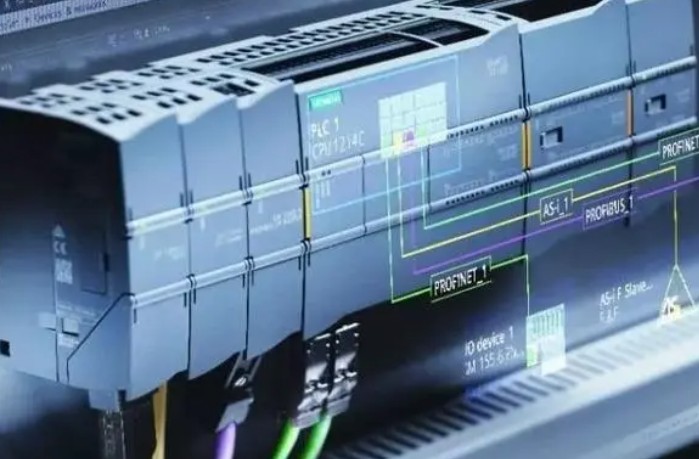Modbus TCP and TCP/IP are two different network communication protocols. Although they are both based on the TCP/IP protocol stack, there are obvious differences in implementation and application. Below we will detail the differences between these two protocols.
Protocol structure
Modbus TCP is an extension based on the Modbus protocol, which uses the TCP/IP protocol for communication.
Modbus protocol is a serial communication protocol, while Modbus TCP is an application layer protocol based on TCP/IP protocol. Its protocol structure is simple and clear, including application layer, transport layer and network layer.
The TCP/IP protocol is a four-layer protocol structure, including the application layer, transport layer, network layer and data link layer.

communication speed
Modbus TCP communication speed is relatively slow, mainly because it uses a longer frame structure and data format, which requires more data parsing and processing.
The TCP/IP protocol has a higher communication speed, mainly because its data transmission format is more concise and clear, and can quickly exchange and transmit data.
Network topology
Modbus TCP adopts a star network topology based on Ethernet, which can support multiple devices to communicate at the same time.
The TCP/IP protocol supports a variety of network topologies, including star, ring, tree and other structures, which is more flexible and scalable.
Data transmission method
Modbus TCP communication adopts half-duplex mode, that is, only one party can transmit data at the same time.
The TCP/IP protocol adopts full-duplex mode, that is, both parties can transmit and receive data at the same time, improving communication efficiency.
Application scenarios
Modbus TCP protocol is mainly used in fields such as industrial automation control systems and machine equipment, and supports a wide range of equipment and system integration.
The TCP/IP protocol is widely used in the Internet, local area networks, wide area networks and other fields, supporting various types of data transmission and communication needs.
To sum up, Modbus TCP and TCP/IP are two different network communication protocols. They have obvious differences in protocol structure, communication speed, network topology, data transmission method and application scenarios. Users can choose according to their own needs. Choose the appropriate protocol according to your needs.
Further reading:
What is modbus tcp protocol?
Modbus TCP is an application layer protocol based on TCP/IP protocol, which is an extension of Modbus protocol. Modbus protocol is a serial communication protocol originally developed by Modicon Company in 1979 for communication between devices in industrial automation control systems. Modbus TCP converts the Modbus protocol into the Ethernet-based TCP/IP protocol to support a wider range of equipment and system integration. Modbus TCP protocol uses the transport layer and network layer of the TCP/IP protocol stack to achieve data communication between devices.
Modbus TCP protocol has the advantages of simplicity, reliability and wide application. It not only supports communication between devices, but also enables remote access and control over the Internet. Modbus TCP protocol has a wide range of application scenarios, including industrial automation control systems, energy management, environmental monitoring, building automation and other fields. At the same time, the Modbus TCP protocol is also an open protocol and can be easily integrated with other communication protocols.
What is the tcp/ip protocol?
The TCP/IP protocol is one of the most commonly used protocols on the Internet. It is the core protocol of the Internet protocol suite. The TCP/IP protocol is a set of Internet communication protocols developed by the Advanced Research Projects Agency (ARPA) of the U.S. Department of Defense in the early 1970s, aiming to provide a standardized communication protocol for global computer networks. The TCP/IP protocol provides a reliable, flexible, and versatile data transmission method that allows different computers and networks on the Internet to communicate with each other and exchange information.
The TCP/IP protocol consists of two main parts: Transmission Control Protocol (TCP) and Internet Protocol (IP). Among them, the IP protocol is mainly responsible for the transmission of data packets in the network, including functions such as routing, fragmentation, and assembly of data packets. The TCP protocol is a transport layer protocol built on the IP protocol. It is mainly responsible for establishing reliable connections at both ends of the communication and segmenting, assembling, and inspecting data. The TCP/IP protocol also includes many other protocols, such as User Datagram Protocol (UDP), Network Time Protocol (NTP), Domain Name System Protocol (DNS), etc.
The TCP/IP protocol is an open standard protocol that has a wide range of application scenarios, including various network environments such as the Internet, LAN, and WAN. The TCP/IP protocol provides a universal communication standard that allows different types of computers and devices to communicate with each other and exchange information. At the same time, the TCP/IP protocol is also an extensible protocol that can be easily integrated with other communication protocols to achieve more complex communication and data processing functions.